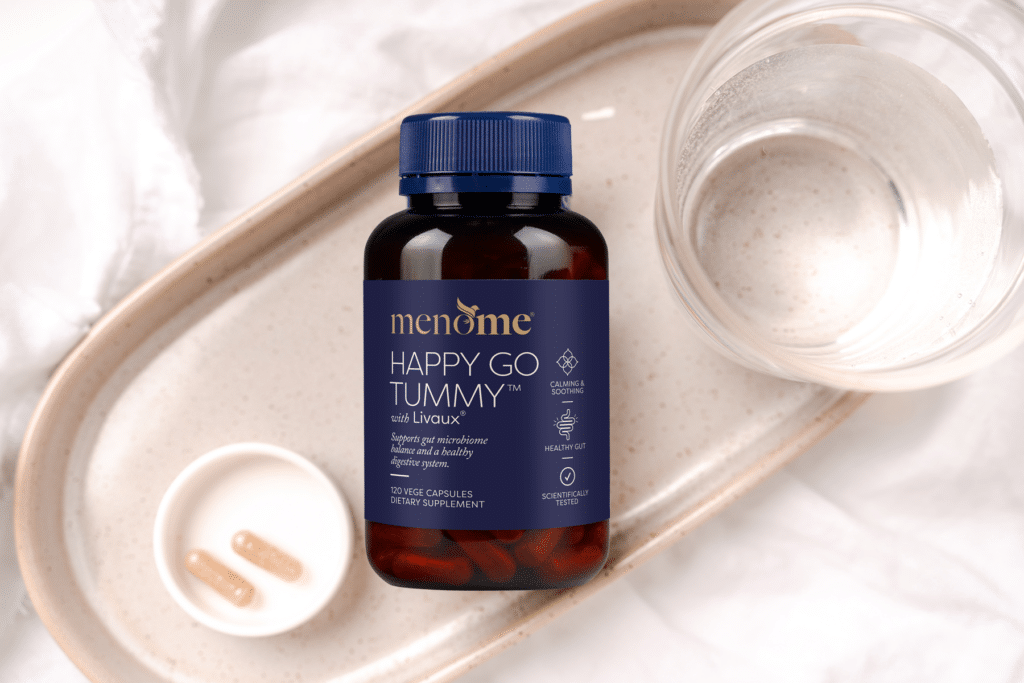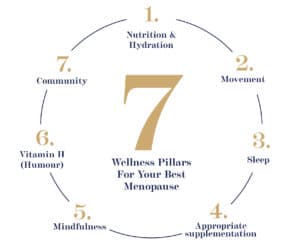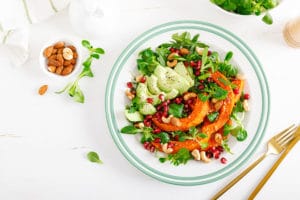PPFF?
Say what?
Yep, you’ll often hear us referring to PPFF which stands for Phytoestrogens, Protein, (healthy) Fat and Fibre in food.
These four pillars along with a Mediterranean, plant-dominant and anti-inflammatory style of eating have proven to be super-beneficial for women in menopause.1,2
Indeed, our yummy recipes follow PPFF guidelines for women in pre-, peri- and post-menopause.
To reiterate, this stands for Phytoestrogens, Protein (healthy) Fat and Fibre.
In addition, they’re [our recipes] anti-inflammatory and guided by the Mediterranean style of eating. Oh, and gut-friendly – soooo important as we head into the waters of peri- and post-menopause.
Watch: How Gut Health Impacts Your Meno Journey
You might like: 5 Ways Your Diet Should Change Entering Perimenopause
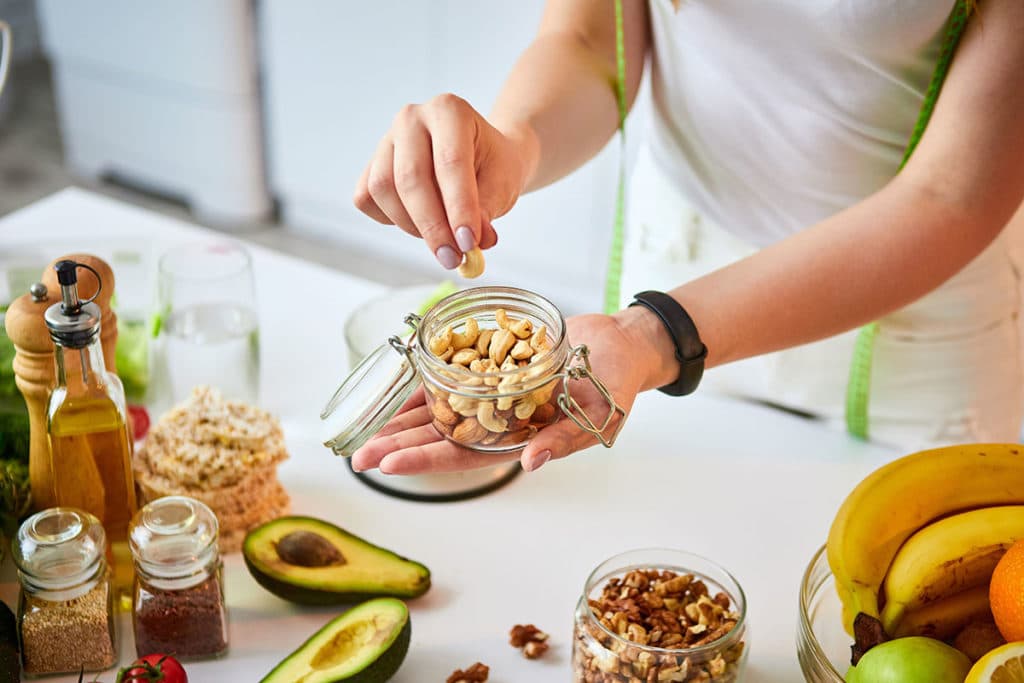
Why we love PPFF
As a result of PPFF, your body works beautifully to keep your blood sugar balanced, your hunger hormone satisfied, your body packed with nutrients, and your weight under control. Hallelujah! In addition, the fibre feeds the good gut bugs we thrive on.
Furthermore, phytoestrogens weakly mimic your body’s natural estrogen supplementing depleted estrogen receptors. Oh, how we love Mother Nature (smile-y face).
There’s also compelling evidence that a plant-based diet3 or certainly a diet heavily skewed to plants4 can help to minimise menopausal symptoms.
Indeed, the European Menopause and Andropause Society released a position statement5 that summarised the evidence of the Mediterranean Diet and menopausal health.
PPFF = phytoestrogens
Plant foods are abundant in naturally occurring estrogens – phytoestrogens – which are similar in structure to our body’s natural estrogen and bind to the same receptors.
In fact, some schools of thought believe a diet high in plants, tofu and soy may be why Asian women don’t typically have as severe menopausal symptoms as Western women. We often reference Jean Hailles, the well-known women’s health centre in Australia’s take on this.
“In a perimenopausal or post-menopausal woman, when her own body’s estrogen is low, phytoestrogens may help ease the symptoms of low estrogen in about one in three women. This is because about a third of the population has the specific gut bacteria that can metabolise the isoflavones (a type of phytoestrogen) in soy to a more potent phytoestrogen called equol. The amount of isoflavones needed daily to achieve therapeutic effects is contained in about 200g of tofu, or 100g of tempeh,” they say.
“Some studies have shown potential benefits of phytoestrogens regarding cardiovascular risk, bone density and menopausal symptoms. About a third of women who eat a diet that delivers amounts of phytoestrogens typical of an Asian diet (particularly from soy foods) find that their menopausal symptoms improve. This is because only about one-third (and possibly up to a half) of all people have the specific gut bacteria that convert soy isoflavone (phytoestrogen) daidzein, to the more potent form, equol.”
There’s a caveat though: It’s not recommended women at high risk of breast cancer, or who have had breast cancer, take soy supplements.
Phytoestrogens8 include foods such as lentils, chickpeas and soybeans, carrots, garlic, and onions. Then there are nuts and seeds such as walnuts, almonds, sunflower and sesame seeds. Oats, rice, tofu and stone fruit are also phytoestrogens.
They’re abundant in naturally occurring estrogens (phyto = plant) similar in structure to your body’s natural estrogen and bind to the same receptors.
You night like: 3 Safe, Natural, No-Estrogen Alternatives To HRT
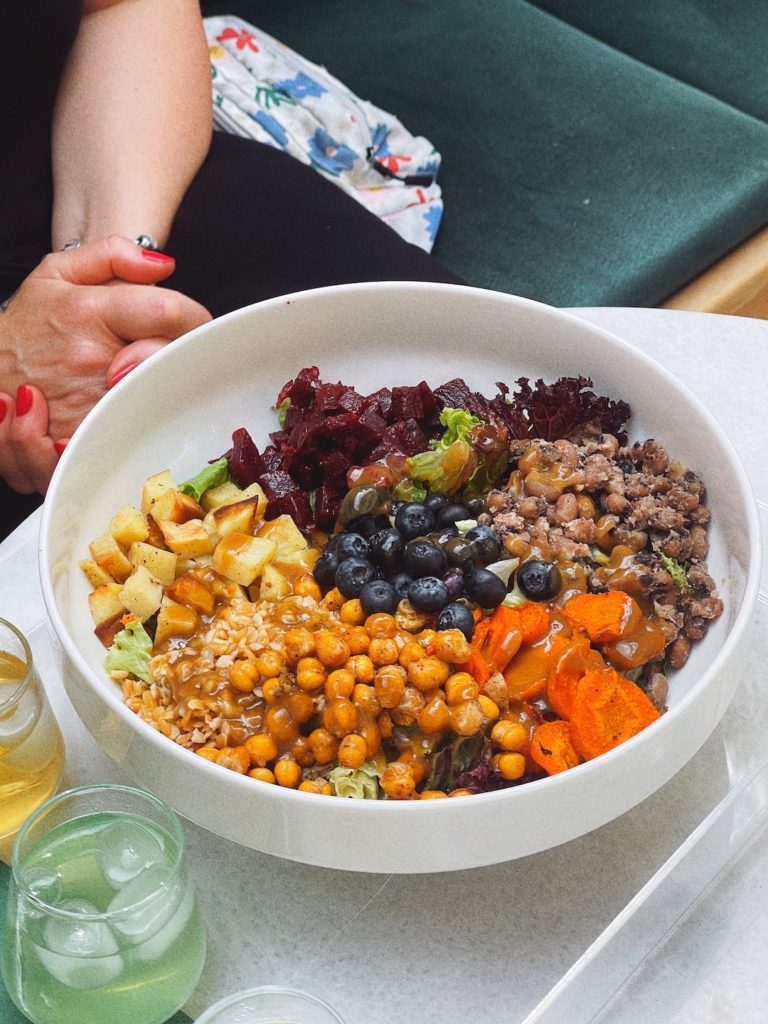
PPFF = protein
Fact. You need more protein during peri- and post-menopause6. It’s the building block of your hormones and muscle mass and an essential weight management tool. Not only that protein helps with your energy levels, sleep and mood.
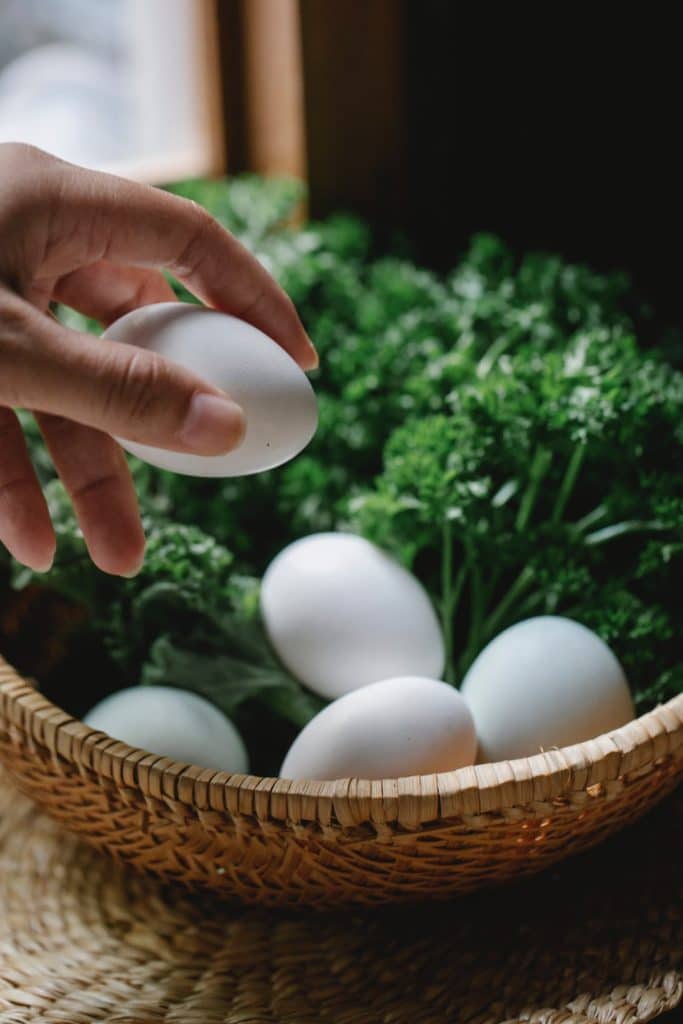
Furthermore, a 2021 study7 found that sarcopenia – a decline in skeletal muscle mass and function – was 9% lower in late peri- and post-menopausal women than early perimenopausal women.
From a weight loss perspective, protein will keep you fuller for longer. It’s also thermogenic9 (heat generating) so may increase metabolism. And it helps stabilise blood sugar and curb cravings.
Getting into the habit of front-loading protein is a fantastic idea. Begin your day with a protein punch such as eggs or chia seeds and continue to eat it throughout the day. As a result, you should feel more energetic and calm. For weight loss, always pair it with good fat. At night, due to its thermogenic nature, have a smaller portion three to four hours before bed so it doesn’t keep you awake.
Athlete, exercise physiologist and nutrition scientist Dr Stacy Sims recommends at least 1.8 to 2 grams of protein per kilogram of weight a day, which is about 30 grams at each meal, and 15 to 20 grams with snacks. To break that down visibly, a palm-sized portion is about 20-30 grams.
You might like: 7 Reasons Strength Training Is Vital For Women In Midlife
According to NRV (Nutrient Reference Values for Australia and New Zealand), you should be eating 25g per day.
Dietary fibre‘s the indigestible part of fruit, vegetables and whole grains like oats, quinoa and legumes.
There are two types of fibre:
- Soluble– helps keep blood sugar balanced, aids good digestion and keeps you fuller for longer. It also increases insulin sensitivity and improves gut health.
- Insoluble– soaks up water, softening your poop and cleaning out your colon. This helps to remove waste and excess toxins.
You might like: Menopausal Weight Gain | 3 Ways To Lose Weight After 40
PPFF = fibre
Ahhh, fantastic fibre. You might be surprised to learn that most of us don’t eat enough dietary fibre. Yet it’s key to gut health, weight loss, health and hormonal balance. In fact, gastroentologist – Dr Will Bulsiewicz – says 19 out of 20 people don’t eat enough fibre which contributes to weight gain, chronic disease and gut dysbiosis. (Dysbiosis means imbalance and a happy gut = a happy menopause.)
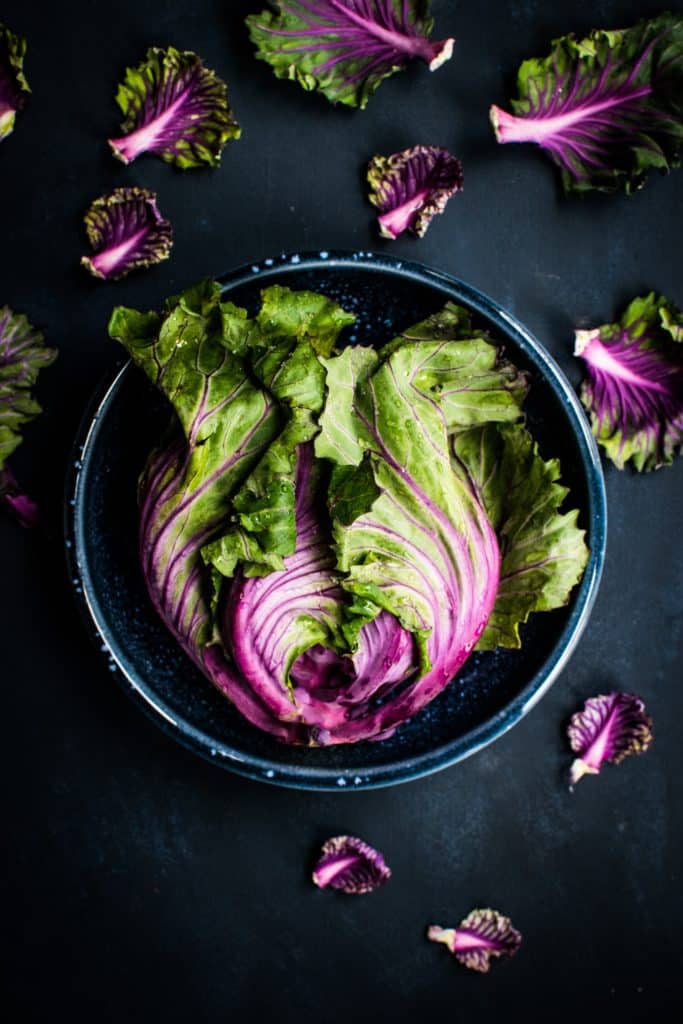
PPFF = (healthy) fat

If you’re of the generation who grew up being told to avoid fat, hear this! Healthy fat does not make you fat.
In fact, it helps to keep you sated and builds hormones. Especially if the fat you choose provides omega-3 essential fatty acid (EFA) which our bodies can’t make themselves.
Healthy fat tastes good so it’s super-satisfying. Moreover, like protein, it’ll keep you fuller for longer and lessen blood sugar spikes. As noted above omega-3 is a great choice because as well as helping with your weight it reduces the risk of type 2 diabetes, belly fat, and insulin resistance. It’s also a potent anti-inflammatory.
Additionally, consuming fats is beneficial to your joint health as well as your skin thanks to the anti-inflammatory effect.
Healthy fats include avocados, extra virgin olive oil, hemp seed oil, nuts and seeds and oily fish.
You might like: Six Delicious Foods That Help Balance Hormones
Conclusion
Menopause is a time of enormous physical change and we may experience physiological changes.
As a result weight gain, bloating and indigestion may occur as blood sugar imbalances and digestive issues become common.
This is why the type of food we choose to eat can make such a difference. It’s also why dietary habits may need a few tweaks to make the transition easier.
We recommend a multi-pronged approach to experiencing your best natural menopause journey. Nutrition and hydration play a huge role along and good gut health is a major player too. That’s why we created Happy Go Tummy®
Share with a friend
Sign up to our mailing list for the latest news and stories and receive a $5 discount code to redeem on your first purchase, plus receive a 3-step eBook on ways to support your body through menopause.
This site is protected by reCAPTCHA and the Google Privacy Policy and Terms of Service apply.
Related Articles
References:
- Silva TR, Oppermann K, Reis FM, Spritzer PM. Nutrition in Menopausal Women: A Narrative Review. Nutrients. 2021 Jun 23;13(7):2149. doi: 10.3390/nu13072149. PMID: 34201460; PMCID: PMC8308420.
- Barnard ND, Kahleova H, Holtz DN, Del Aguila F, Neola M, Crosby LM, Holubkov R. The Women’s Study for the Alleviation of Vasomotor Symptoms (WAVS): a randomized, controlled trial of a plant-based diet and whole soybeans for postmenopausal women. Menopause. 2021 Jul 12;28(10):1150-1156. doi: 10.1097/GME.0000000000001812. PMID: 34260478; PMCID: PMC8462449.
- Beezhold B, Radnitz C, McGrath RE, Feldman A. Vegans report less bothersome vasomotor and physical menopausal symptoms than omnivores. Maturitas. 2018 Jun;112:12-17. doi: 10.1016/j.maturitas.2018.03.009. Epub 2018 Mar 14. PMID: 29704911.
- Sayón-Orea C, Santiago S, Cuervo M, Martínez-González MA, Garcia A, Martínez JA. Adherence to Mediterranean dietary pattern and menopausal symptoms in relation to overweight/obesity in Spanish perimenopausal and postmenopausal women. Menopause. 2015 Jul;22(7):750-7. doi: 10.1097/GME.0000000000000378. PMID: 25513984.
- https://emas-online.org/emas-position-statement-the-mediterranean-diet-and-menopausal-health/
- Chernoff R. Protein and older adults. J Am Coll Nutr. 2004 Dec;23(6 Suppl):627S-630S. doi: 10.1080/07315724.2004.10719434. PMID: 15640517.
- Ko J, Park YM. Menopause and the Loss of Skeletal Muscle Mass in Women. Iran J Public Health. 2021 Feb;50(2):413-414. doi: 10.18502/ijph.v50i2.5362. PMID: 33748008; PMCID: PMC7956097.
- Bacciottini L, Falchetti A, Pampaloni B, Bartolini E, Carossino AM, Brandi ML. Phytoestrogens: food or drug? Clin Cases Miner Bone Metab. 2007 May;4(2):123-30. PMID: 22461212; PMCID: PMC2781234.
- Douglas Paddon-Jones, Eric Westman, Richard D Mattes, Robert R Wolfe, Arne Astrup, Margriet Westerterp-Plantenga, Protein, weight management, and satiety, The American Journal of Clinical Nutrition, Volume 87, Issue 5, May 2008, Pages 1558S–1561S, https://doi.org/10.1093/ajcn/87.5.1558S


